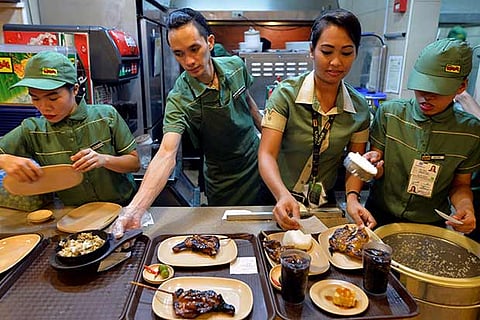

Chennai
Ajinomoto, in Japanese, translates to essence of taste and is the trade name of Mono Sodium Glutamate (MSG). Ajinomoto India is affiliated to the over-100-year-old Japanese food and chemical corporation, which produces seasonings, cooking oils, and pharmaceuticals.
Currently, Ajinomoto is imported from Thailand and the Chennai facility has a state-of-the-art packaging unit, from where it is distributed to other parts of the country. On why the company chose the city for establishing its presence, Atsushi Mishuku, Director, Ajinomoto India says, “We wanted access to port to help our import process. We wanted to be in a rice consuming state. Also, it came with the advantage of packaging cost performance.”
Incidentally, Ajinomoto is available in packs of 5 g, 13 g, 50 g and 100 g for the retail consumers, while for the food service segment, it is available in 500 g packs. This range comes with a “green” dot signifying the adherence to the prevalent food laws in India.
The pricing varies between Rs 2 and Rs 120, with the 500 g category generating the “biggest volumes.” The company has done away with its 15 g sachets, resizing them to 13 g priced for Rs 5. “Due to inflation and other economic factors, we had to take this decision recently,” Atsushi said.
But, the unit is no longer confined to packaging operations. Under the ‘Hapima’ brand, the company now manufactures fried rice of three variants – Hapima fried rice mix original, hot and spicy and masala – in the facility. With a 200 per cent growth year-on-year, the Ajinomoto official says, the capacity utilisation of the plant is around 90 per cent.
Sharing its growth and business plans, Atsushi said the company-owned depots – nine of them – are used to distribute Ajinomoto products. “These depots are tied to 21,000 kirana shops in Tamil Nadu while 39 of its Direct Selling Agents use the distribution network of another 10,000 such outlets for the purpose,” he added.
The success of its TV commercial campaign has led the brand to make inroads to the neighbouring state of Karnataka. “We appointed a distributor late last year in Bengaluru, as the Tamil population in that state is sizeable,” he said, noting that the symbol of “red bowl,” sets it apart from competition.
The privately-held entity is proactively taking steps to dispel the “misconception” that Ajinomoto is identified with. Says Atsushi, “Our history is short in India, given that the group was established in 1909. We would like to state that Ajinomoto is made from 100 per cent natural ingredients such as sugarcane, corn, wheat, rice, tapioca and sugar beet.”
Govinda Biswas, Manager-Marketing, Ajinomoto India, chips in to add that it has all the safety, quality and food certifications are in order. “We have been assessed by the WHO (World Health Organisation), FAO – Food and Agriculture Organisation and the USFDA – the Food and Drug Administration and classified as a healthy product,” he says. Ajinomoto is the fifth taste or umami which means delicious (Umai) taste (mi) in Japanese. “Sweet, sour, salt and bitter are the other four taste connotations,” Govinda seeks to point out.
Visit news.dtnext.in to explore our interactive epaper!
Download the DT Next app for more exciting features!
Click here for iOS
Click here for Android